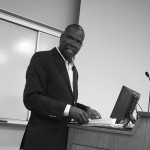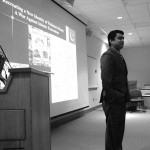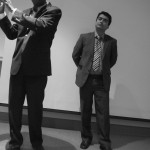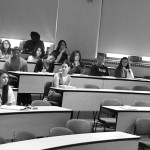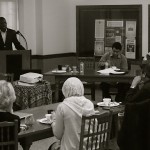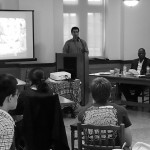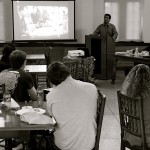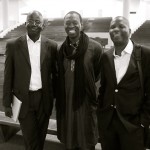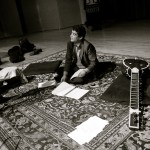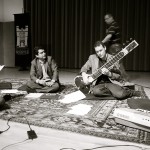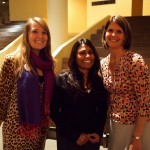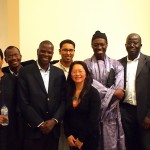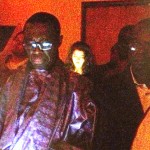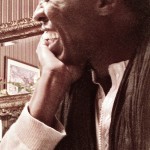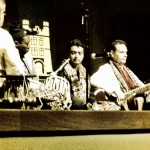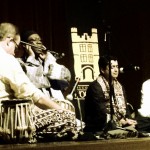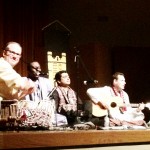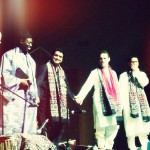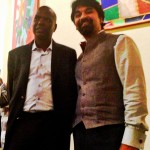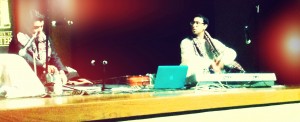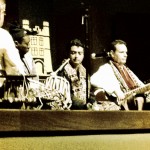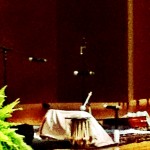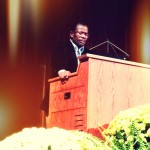By John Finn
“Sufi orders from South Asia and Senegal have previously not played together or explored their collective cultural roots musically on a stage or in an academic environment.”
WOOSTER, Ohio — For students used to hearing artists like Taylor Swift, Owl City, Nicki Manaj, and Carly Rae Jepson, last week’s Forum event at The College of Wooster was an interesting and reflective alternative. Karim Gillani, a Canadian Sufi and Ghazal musician, and Moussa Dieng Kala, a Senegalese Sufi singer and poet, joined Altaz Ibrahim, Jim Feist, and Hans Utter, for “An Evening of Sufi Music” in McGaw Chapel. In addition, Sufi scholar Cheikh Babou of the University of Pennsylvania, who provided academic and critical context in multiple panels and class visits held over two days, also joined them.
Sufi is a devotional form of music based on the poetry of Islamic philosophers. While many orthodox Muslims reject the inclusion of music in worship because of the belief that it might lead to temptation, Sufis believe that their music provides a way to become closer to God.
Among those in attendance was Linda Morgan-Clement, chaplain and director of Interfaith Campus Ministry as well as an adjunct professor in the Department of Religious Studies at Wooster. “As a woman of faith, but not a Muslim, I found myself moved by the spirit of prayer and grateful that McGaw Chapel was filled with the music, silence, and prayer of this great World religion,” she said. “(I’m thankful) to the scholars who are also men of faith for this blending of intellect, history, culture, and faith.”
Student reaction was also positive on Twitter, which was ostensibly used for the first time during a Forum event, and in reaction papers that were assigned in classes that are now being uploaded onto the blog created for the symposium. “I thought it was absolutely wonderful,” said Chelsea Carlson, a first-year student from Waterford, Pa. “It was so obvious to me that all of the musicians had such a passion beyond words for the music they were playing. You could see it in (their) expressions and body language.”
Adam Hansell, a junior from Rockville, Md., described the music as extremely relaxing and slow. “It was quite clear that playing this music was a spiritual experience, not only for the musicians, but also for some of the audience members, who bobbed their heads back and forth, transfixed by the sound,” he said.
The overarching objective of the event was to showcase a more tolerant and peace-loving aspect of the Muslim world. “We also wanted to learn about parts of the Muslim world geographically divergent from, but in conversation with the Middle East,” according to Amyaz Moledina and Ibra Sene, both professors at Wooster and part of the organizing team. Hansell said in a blog posting “I felt that I learned a lot about Sufi Islam by simply watching the performance, and (I believe) people would learn more (about Islam) if it involved listening to Sufi music.”
The event was historic, according to Moledina, because Sufi orders from South Asia and Senegal have previously not played together or explored their collective cultural roots musically on a stage or in an academic environment. “This is the first time that Ismailis and Mourides have come together to meditate,” said Moledina. “We need to continue exposing and educating people about different Muslim narratives and practices.”
